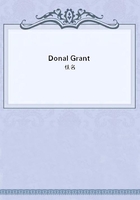
第11章
"But hoo mak ye a livin' that w'y?" suggested Donal.
"Hoots, the maister o' the trade sees to my wauges!"
"An' wha may he be?" asked Donal, well foreseeing the answer.
"He was never cobbler himsel', but he was ance carpenter; an' noo he's liftit up to be heid o' a' the trades. An' there's ae thing he canna bide, an' that's close parin'."
He stopped. But Donal held his peace, waiting; and he went on.
"To them 'at maks little, for reasons good, by their neebour, he gies the better wauges whan they gang hame. To them 'at maks a' 'at they can, he says, 'Ye helpit yersel'; help awa'; ye hae yer reward.
Only comena near me, for I canna bide ye'.--But aboot thae shune o' yours, I dinna weel ken! They're weel eneuch worth duin' the best I can for them; but the morn's Sunday, an' what hae ye to put on?"
"Naething--till my kist comes; an' that, I doobt, winna be afore Monday, or maybe the day efter."
"An' ye winna be able to gang to the kirk!"
"I'm no partic'lar aboot gaein' to the kirk; but gien I wantit to gang, or gien I thoucht I was b'un' to gang, think ye I wad bide at hame 'cause I hadna shune to gang in! Wad I fancy the Lord affrontit wi' the bare feet he made himsel'!"
The cobbler caught up the worst shoe and began upon it at once.
"Ye s' hae't, sir," he said, "gien I sit a' nicht at it! The ane 'll du till Monday. Ye s' hae't afore kirk-time, but ye maun come intil the hoose to get it, for the fowk wud be scunnert to see me workin' upo' the Sabbath-day. They dinna un'erstan' 'at the Maister works Sunday an' Setterday--an' his Father as weel!"
"Ye dinna think, than, there's onything wrang in men'in' a pair o' shune on the Sabbath-day?"
"Wrang!--in obeyin' my Maister, whase is the day, as weel's a' the days? They wad fain tak it frae the Son o' Man, wha's the lord o' 't, but they canna!"
He looked up over the old shoe with eyes that flashed.
"But then--excuse me," said Donal, "--why shouldna ye haud yer face til 't, an' work openly, i' the name o' God?"
"We're telt naither to du oor gude warks afore men to be seen o' them, nor yet to cast oor pearls afore swine. I coont cobblin' your shoes, sir, a far better wark nor gaein' to the kirk, an' I wadna hae't seen o' men. Gien I war warkin' for poverty, it wad be anither thing."
This last Donal did not understand, but learned afterwards what the cobbler meant: the day being for rest, the next duty to helping another was to rest himself. To work for fear of starving would be to distrust the Father, and act as if man lived by bread alone.
"Whan I think o' 't," he resumed after a pause, "bein' Sunday, I'll tak them hame to ye. Whaur wull ye be?"
"That's what I wad fain hae ye tell me," answered Donal. "I had thoucht to put up at the Morven Airms, but there's something I dinna like aboot the lan'lord. Ken ye ony dacent, clean place, whaur they wad gie me a room to mysel', an' no seek mair nor I could pey them?"
"We hae a bit roomie oorsel's," said the cobbler, "at the service o' ony dacent wayfarin' man that can stan' the smell, an' put up wi' oor w'ys. For peyment, ye can pey what ye think it's worth. We're never varra partic'lar."
"I tak yer offer wi' thankfu'ness," answered Donal.
"Weel, gang ye in at that door jist 'afore ye, an' ye'll see the guidwife--there's nane ither til see. I wad gang wi' ye mysel', but I canna, wi' this shue o' yours to turn intil a Sunday ane!"
Donal went to the door indicated. It stood wide open; for while the cobbler sat outside at his work, his wife would never shut the door.
He knocked, but there came no answer.
"She's some dull o' hearin'," said the cobbler, and called her by his own name for her.
"Doory! Doory!" he said.
"She canna be that deif gien she hears ye!" said Donal; for he spoke hardly louder than usual.
"Whan God gies you a wife, may she be ane to hear yer lichtest word!" answered the cobbler.
Sure enough, he had scarcely finished the sentence, when Doory appeared at the door.
"Did ye cry, guidman?" she said.
"Na, Doory: I canna say I cried; but I spak, an' ye, as is yer custom, hearkent til my word!--Here's a believin' lad--I'm thinkin' he maun be a gentleman, but I'm no sure; it's hard for a cobbler to ken a gentleman 'at comes til him wantin' shune; but he may be a gentleman for a' that, an' there's nae hurry to ken. He's welcome to me, gien he be welcome to you. Can ye gie him a nicht's lodgin'?"
"Weel that! an' wi' a' my hert!" said Doory. "He's welcome to what we hae."
Turning, she led the way into the house.